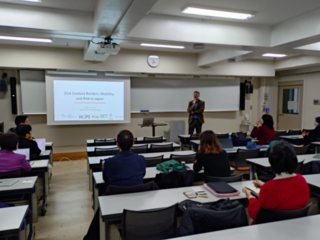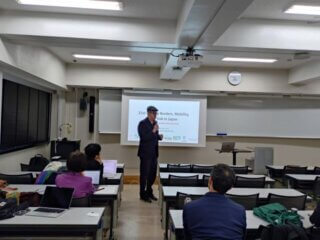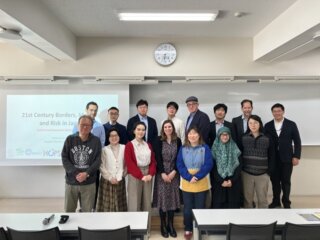The workshop aimed to create networks among early-career researchers and guide them through the academic writing process, with a focus on preparing their work for publication in impactful journals, scientific papers, and theses. Exciting research proposals exploring topics related to migration, territory, politics, and the environment were presented and discussed throughout the workshop.
The event was co-organized by the Research Center for Global Risk at Nagasaki University, the Slavic-Eurasian Research Center and the School of Public Policy at Hokkaido University, the International Research Center for Japanese Studies (Nichibunken), Victoria University (Canada), and the international research network Borders in Globalization (BIG).
A total of 12 presenters from diverse backgrounds, originating from Vietnam, Indonesia, the United States, Italy, China, Kazakhstan, and Australia—most of whom are based in Japan—received valuable insights and critical feedback on their papers from an impressive lineup of mentors, including:
- Professor Emmanuel Brunet-Jailly (University of Victoria), editor of several journals and Director of the Center for Global Studies
- Professor Emeritus Keiko Tamura (The University of Kitakyushu), an expert in Southeast Asian and gender studies
- Professor Reiko Ogawa (Chiba University), a specialist in migration research
- Associate Professor Edward Boyle (Nichibunken), a specialist in border studies
From Nagasaki University, Professor Yuji Morikawa, Dean of the School of Global Humanities and Social Sciences, and Professor Akihiro Iwashita, Director of the Research Center for Global Risk, also participated and made significant contributions to the workshop discussions.
The Research Center for Global Risk remains committed to supporting and strengthening networks among young and early-career researchers while promoting publications on global issues, with an expected output in the form of a special journal issue or an edited volume. The center will continue to explore collaborative opportunities with diverse local and international research institutions to further advance studies on various global risk-related themes.






